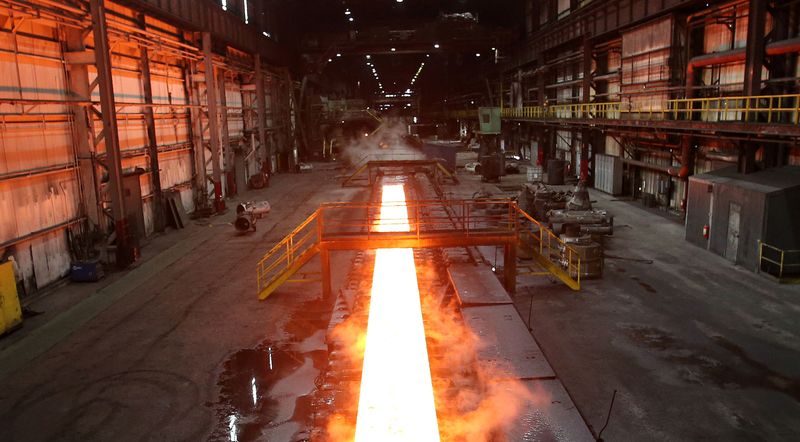WASHINGTON (Reuters) - U.S. steel industry groups and the United Steelworkers union on Wednesday urged President Joe Biden to keep in place the steel tariffs imposed three years ago, saying that lifting them now would undermine the industry's viability.
In a letter to Biden just days after his chief trade negotiator struck a temporary tariff truce with the European Union, the groups argued that the "Section 232" national security tariffs imposed by former president Donald Trump have been a success, leading to $15.7 billion in new capacity investments.
"Eliminating the steel tariffs now would undermine the viability of our industry," wrote the heads of the American Iron and Steel Institute, the Steel Manufacturers Association, the United Steelworkers and other groups.
"Global steel overcapacity has only increased during the pandemic, and past economic crises have led to devastating import surges as other nations dumped their excess steel into the U.S. market."
U.S. Trade Representative Katherine Tai on Monday announced a deal with the European Union not to escalate their dispute over U.S. tariffs on steel and aluminum, sparing Harley-Davidson (NYSE:HOG) motorcycles and American-made whiskey and motor boats from a doubling of the EU's retaliatory tariffs on June 1. The two sides agreed to launch talks on addressing global excess production capacity for steel and aluminum, largely centered in China.
The six-month truce leaves the U.S. metals tariffs in place and previously existing EU retaliatory tariffs, including 25% duties on American motorcycles and whiskey.
But European officials said they are seeking a removal of tariffs on EU-produced metals much sooner.
Steel consuming groups are arguing removal of the Section 232 tariffs would ease soaring steel prices caused partly by supply shutdowns during the coronavirus pandemic, coupled with high demand. Midwest hot rolled steel futures were bid at $1,500 a ton on Wednesday, nearly triple their $590 price at the end of 2019.

The groups said steel is among a number of commodities in short supply due to the pandemic, including lumber, semiconductors, concrete, agricultural products and cleaning products. They noted that every steel market around the world is experiencing high prices and long production lead times.
"The tariffs are providing a fairer and more level playing field, creating the market stability needed for companies to invest in the future of the domestic steel industry, including a significant amount of new steelmaking capacity that has come online very recently," the groups wrote.